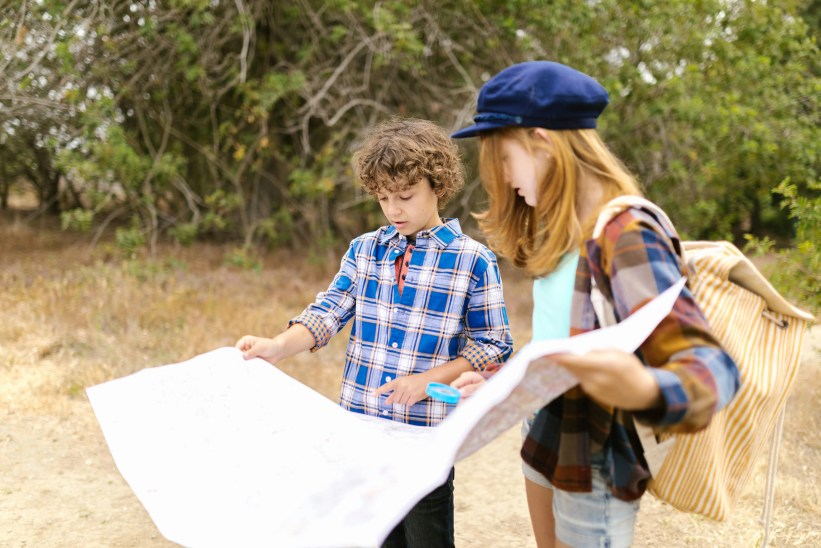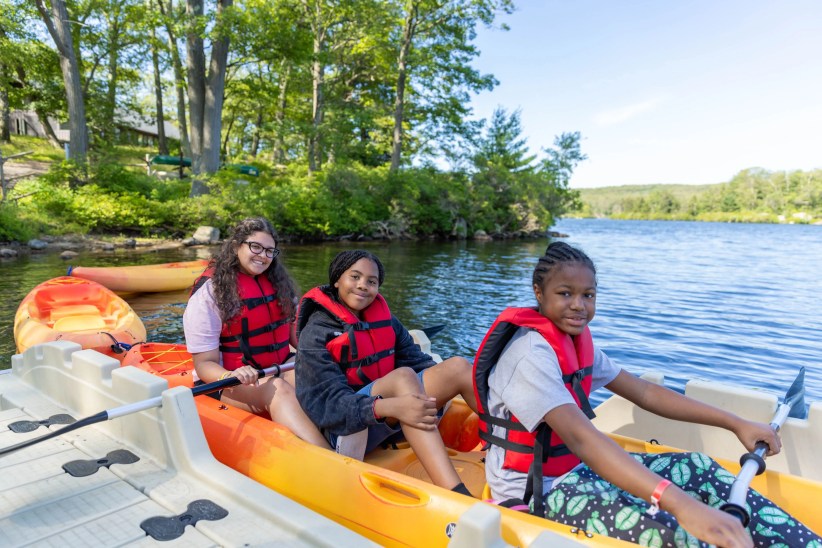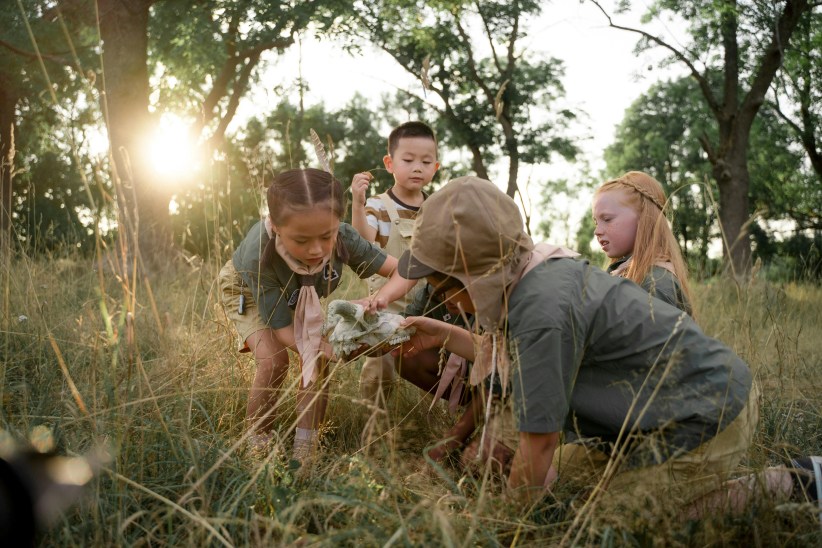Editor’s note: If you’re looking for a “last minute” day camp or sleepaway camp for the summer, New York Family’s final Camp Fairs, are this weekend (April 5-6) from 12-3pm.
SATURDAY (4/5): At St. Jean Baptiste High School on the Upper East Side; SUNDAY (4/6): Congregation Rodeph Sholom on the Upper West Side.
Register HERE for either or both days!

When choosing a sleepaway camp for the first time, many parents contemplate whether or not they should send their child to camp with a friend. While going to camp with a friend works for many campers, it can backfire as well, complicating both the camp experience and the friendship. Parents should keep the following ideas and scenarios in mind when weighing the decision.
As parents search for the perfect camp for their child, many of their friends and family are likely to be strong advocates for the camps their children attend and will be eager to share information. This can be a great way to gather information—but the American Camp Association, New York and New Jersey, (ACA) cautions against choosing a camp solely based on where their child’s friends or cousins go. Parents need to do their own research.
Parents also should make sure the camp’s philosophy complements their own parenting style. In broad strokes, some parents look for a camp that develops self-esteem through team sports and healthy rivalry, while others look for cooperative group learning and non-competitive activities. Keeping this in mind, we gathered some additional reasons for going to camp alone, followed by equally good reasons for attending with a friend.
Worried your child won’t make friends at camp if he or she doesn’t go with a friend? You really needn’t be. Camp is a community where children tend to bond quickly by sharing in the activities and traditions of the camp. Moreover, the staff at any well-run camp is adept at helping kids find their comfort zone and establish friendships with other children. In research by the ACA, 96 percent of campers say that camp helped them make new friends and 69 percent of parents say their child remains in contact with those friends.
With that being said, camps ensure that children who are going without friends for the first time will not be alone. Even before camp begins, many camps host a pre-camp event for first-time campers, which is a good way for children to meet other campers and can relieve any worry they may have about going to camp by themselves. “We sent our daughter to a camp where she knew of children that went there, but she didn’t go with a friend,” says Rebecca Tayne, a Manhattan parent. “The camp does a lot to help campers make new friends. They hosted a new camper orientation a month before camp, where she met a lot of girls and she was able to request they be in the same bunk.” Keep in mind that if a camp doesn’t offer this type of event, your child will still make friends easily beginning with the bus ride to camp.
Going to camp is a wonderful growth experience for all children, but for those who go without a pal specifically, it lets them know that they can meet new friends and be independent.
“My husband and I felt that we didn’t want to saddle [our daughter] with pre-existing dynamics before she even got there. Having a friend could hamper her ability to branch out and make new friends,” Tayne adds.
Exactly. Camp is a place where children can reinvent themselves. Your child has gone to school with the same children for years and may be thought of at home as the athletic child or the shy child. At camp, your child can be whomever he or she chooses to be, which is harder to do when your child is at camp with a friend who knows the roles from home.
Lori Hertz, the mother of two boys from Long Island, sent her children to two different camps. Her oldest son is independent and went to camp without a friend, but her younger son wanted to go to camp with his cousin. However, right before camp started, the cousin decided not to go, and her son had to decide whether or not to go alone. “I said to my son that if he wants to go to camp, he should go and not let the fact that his cousin isn’t going ruin his summer,” Hertz says. “He ended up going and having a great summer.”
There are also plenty of compelling reasons to send your kid to camp with a buddy. Sending your child to camp with a friend could bolster their comfort and their confidence. They’ll feel like they have a friend to count on from the very beginning of camp.
“Camp is an amazing experience where children create new lifelong friendships, develop confidence and independence, and have the opportunity to spread their wings and be whoever they want to be,” says Paul Schorey, director of Chestnut Lake, a coed resident camp in Beach Lake, PA. Often times, attending camp with a friend from home provides the necessary comfort and confidence for a child to go to camp in the first place.” Just keep in mind that you also run the risk of having two home-friends who drift apart while at camp.
If your child wants to go to camp with a friend, or you feel more comfortable sending your child with someone, have a conversation with the camp director and let him or her know that these children are friends from home. Andy Lilientha, owner and director of Camp Winnebago, a boy’s resident camp in Fayette, ME, advises parents to be cautious and prepared. “Parents should be prepared for them to be in different cabins and possibly assigned to different groups. Usually, there is ample time for friends to see each other during the course of the day, and being placed in different groups allows campers the opportunity to establish a broader network of friends rather than encourage children to naturally cling to what is familiar and more comforting—and perhaps not as beneficial,” he says.
Adam Baker, owner and director of Camp Equinunk and Camp Blue Ridge, brother-sister resident camps in Equinunk, PA, takes a similarly balanced approach. “A camper’s experience at sleepaway camp is defined by a collection of experiences that foster the development of their character, morality, and independence—almost all of which happen through the relationships they develop,” he says. “Much of this growth occurs in new situations with new friends. While attending sleepaway camp with a close friend from home creates a comfort, attending with a few friends may dilute the very experiences we hope for our children to have.”
Whether your child goes to camp with a friend or goes alone, camp is a wonderful way for him or her to form new, long-lasting friendships and to become part of a caring community. And, in many cases, camp friendships—whether they began on campgrounds or began at home—will last well beyond the final days of summer.




















